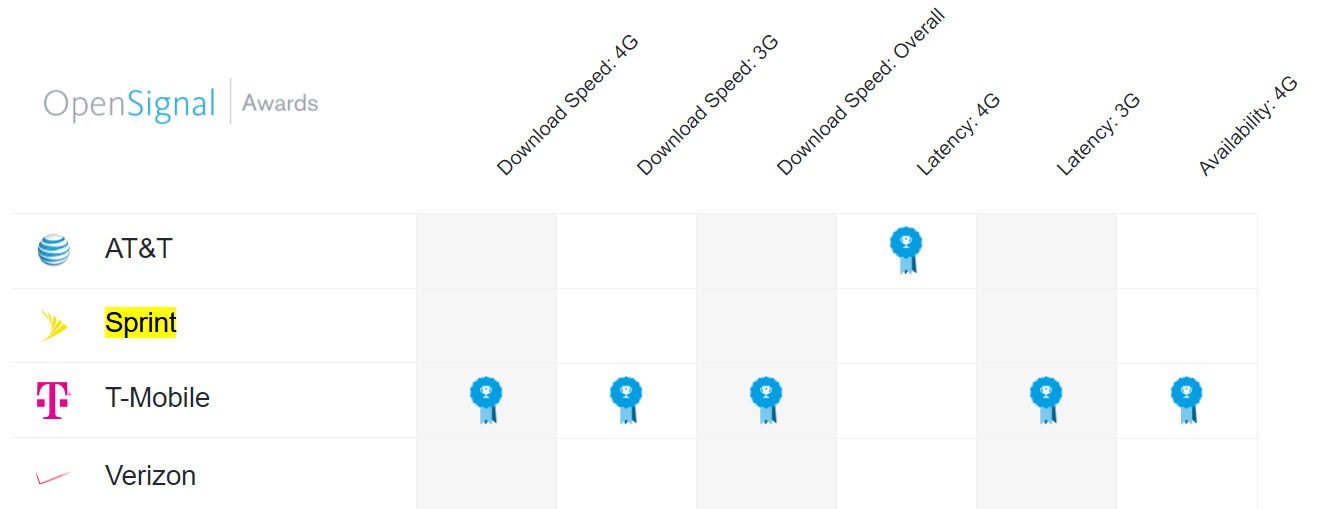T-Mobile Has Finally Pulled Ahead Of Verizon In The Fastest Network Competition
T-Mobile has been on an upward trajectory for years now, but based on a new report from OpenSignal, it appears that the carrier might not have much further to climb. After sweeping OpenSignal's State of Mobile Networks honors for the first half of 2017, T-Mobile followed up its impressive performance with another near sweep, as it came away on top in every category but one — AT&T managed to top T-Mobile with the most responsive 4G connections.
Save for AT&T's win in the 4G latency rankings, T-Mobile brought home the gold in 4G download speed, 3G download speed, overall download speed, 3G latency and 4G availability. OpenSignal compiled this report using nearly 6 billion data points from 237,213 users between October 1st and December 31st of 2017.
It's worth noting that this time last year, T-Mobile and Verizon were evenly split, with each taking two awards a piece and tying in two other categories. Then Verizon reintroduced its unlimited data plan (along with AT&T), and 4G speeds began to tank. T-Mobile had already nearly caught up with Verizon in terms of 4G download speeds (16.65 Mbps and 16.89 Mbps, respectively) by last winter, but then took a commanding lead by August and maintained it through 2017.

According to OpenSignal, T-Mobile ended the year with an average 4G download speed of 19.42 Mbps, while Verizon played catch-up at 17.77 Mbps. While the unlimited plans took a toll on average speeds for both AT&T and Verizon in 2017, the two carriers have begun to recover, with Verizon reaching "pre-unlimited speed levels."
Verizon and AT&T are neck and neck when it comes to availability, but the only area where T-Mobile falls short of the competition is 4G latency, where OpenSignal has given AT&T a slight edge. With an LTE network ping time of 58.3 milliseconds, AT&T has (at least for the moment) established itself as the most responsive US network.
Perhaps most surprising of all is Sprint's recovery across all categories. In the past year, the bottom-dwelling carrier has seen its availability score jump 9% and average 4G speeds rise a whopping 33%. Sprint is still firmly the fourth place carrier, but if it keeps up at this pace, it could soon surpass AT&T in several important categories.
Although OpenSignal's awards were a nearly-clean sweep for T-Mobile, it's worth mentioning that other methods of testing network speed and coverage aren't nearly as flattering for T-Mobile. Rootmetrics, which relies on independent drive-testing to measure networks, instead of crowdsourced data, has long had Verizon in first place, with T-Mobile languishing at the back of the pack. We've covered the differences in the different types of testing before, but just keep in mind that the trend, not the end result, is the most important thing here. Whether you think T-Mobile has the "best" network or not, it's hard to argue that its network has improved significantly over the last year, while AT&T and Verizon have been treading water.